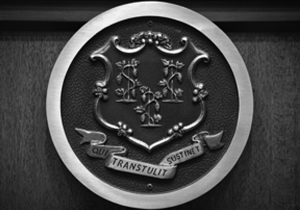With little or no interaction and few signals from legislative leaders that a new budget proposal may be on the horizon for FY 18-19, Governor Malloy today offered his fourth proposal to pay the state’s bills and balance the budget during the biennium.
The Governor’s new proposal would cut spending by a total of $144 million over the biennium, largely in the area of municipal grants, social services, and holdbacks. However, the proposed changes would maintain emergency relief to distressed municipalities by including a revised education aid formula that does not drastically shift money from wealthy communities to subsidize poorer ones.
Malloy said the goals of this proposal, which includes just numbers and line items with no narrative or detail, was to incorporate bipartisan ideas, cut controversial taxes and shrink the budget and the accompanying implementers down to their “essential parts.”
It is difficult to determine with this proposal if the Governor is seeking to accommodate the eight Democrats who crossed over and helped pass the GOP budget in the House and Senate recently (which he subsequently vetoed), or if he is attempting to attract sufficient votes on both sides of the aisle to finally pass a budget.
Retreat on taxes
The Governor’s 4.0 proposal retreats from the following controversial tax proposals, which have been bandied about for some time:
- A 49-cent surcharge on cell phone bills.
- A statewide property tax on second homes.
- A fee on fantasy sports betting.
- A 25-cent fee on ridesharing services such as Uber and Lyft.
- Cancellation of $30 million in tax breaks, rather than $50 million as proposed previously, to be determined in FY 19.
- He also abandoned a criminal-justice reform that would have expanded a youthful offender program to save young adults from criminal records. The measure was opposed by at least one of the Senate Democrats who voted against the September plan.
- Reduce Earned Income Tax Credit from 25% to 23%.
Additionally, the Governor’s latest proposal would shift increased DMV fees from the General Fund to the Special Transportation Fund, and reduce transfers from the Green Bank, among other things.
Education, other spending reductions
The administration’s newest plan would reduce the Education Cost Sharing grant by about 6% in FY 18, hitting mostly affluent and middle-income communities. This is a major revision to previous proposals, which many felt were too draconian.
The Governor’s plan also would require towns to pick up a portion of their teachers’ retirement costs currently paid for by the state. This issue has been a lightning rod for many legislators and towns across the state.
On the transportation front, the proposal would eliminate the CT Transportation Finance Authority created during the 2017 legislative session.
Governor Malloy has been operating the state by executive order for more than 3 months absent a budget agreement. Fiscal analysts predict that state finances, unless revised, will run $1.6 billion in the red in FY 18 and $1.9 billion in FY 19.
“We appreciate Governor Malloy’s offering of a revised budget plan and will, of course, examine it in some detail as it appears to contain some elements of our previous proposals,” House Minority Leader Themis Klarides, R-Derby, said. “However, we remain focused on our own budget negotiations with our Democratic colleagues.”
Malloy unveiled his first plan for the biennium on Feb. 8, following with revised two-year plans on May 15 and Sept. 8. The Sept. 8 proposal led to a compromise budget negotiated by the administration and Democratic legislative leadership, but the budget was rejected and a GOP-crafted plan was adopted in mid-September when 8 Democrats defected – 3 in the Senate and 5 in the House. The Governor ultimately vetoed that budget, which brings us to the present standstill.
Hope springs eternal that something will give.


